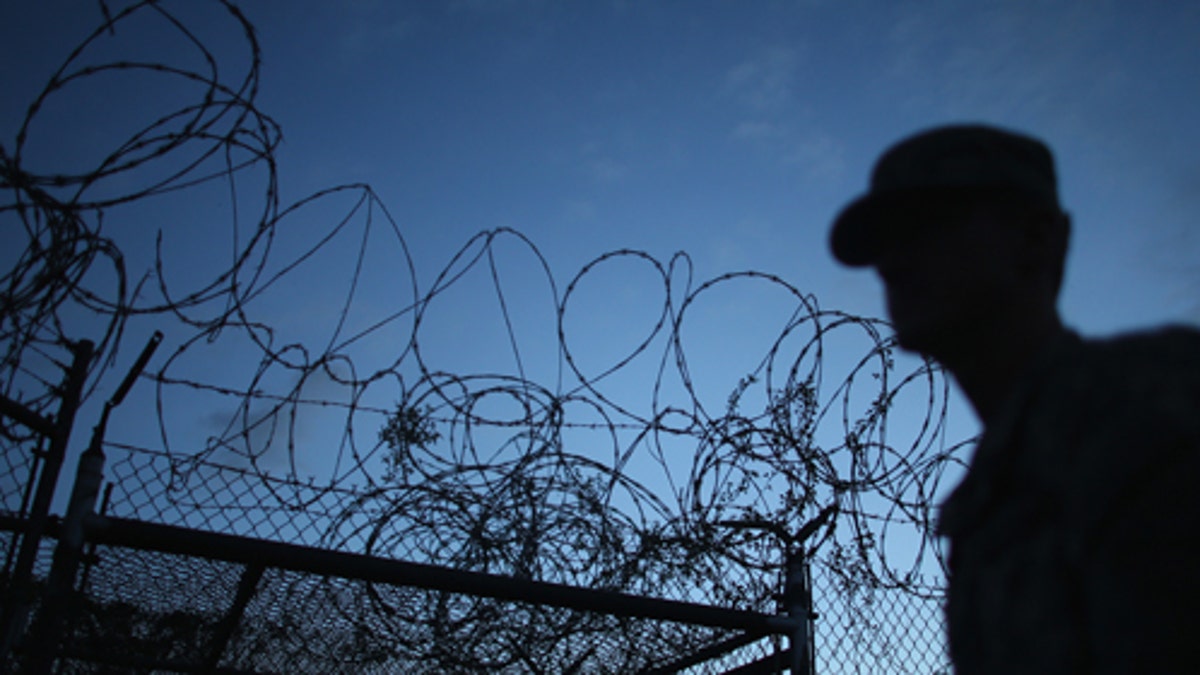
GUANTANAMO BAY, CUBA - JUNE 27: (EDITORS NOTE: Image has been reviewed by the U.S. Military prior to transmission.) A Public Affairs Officer escorts media through the currently closed Camp X-Ray which was the first detention facility to hold 'enemy combatants' at the U.S. Naval Station on June 27, 2013 in Guantanamo Bay, Cuba.The U.S. Naval Station at Guantanamo Bay, houses the American detention center for 'enemy combatants'. President Barack Obama has recently spoken again about closing the prison which has been used to hold prisoners from the invasion of Afghanistan and the war on terror since early 2002. (Photo by Joe Raedle/Getty Images) (2013 Getty Images)
A former prison chief in Cuba who returned to the island after he was accused of human rights abuses may have gone into hiding in the U.S., The Miami Herald is reporting.
The 71-year old former Interior Ministry Col. Crescencio Marino Rivero moved to the U.S. three years ago after retiring from his Cuba post in 1996. He returned to Cuba last November after being identified as the former director of prisons in the central province of Villa Clara and accused of abusing about a half-dozen dissidents.
But a person with direct knowledge of the case told the Herald that Rivero is back in the U.S., but did not specific where he was and asked for anonymity because the person was not authorized to speak publically about the situation.
Juana Ferrer, Rivero’s wife and a former Cuban Interior Ministry passport officer, denied that her husband was in the U.S. and insisted that he remained in Cuba.
Allegations against Rivero surfaced after a number of lawyers in South Florida complained to federal agencies, prompting U.S. Immigration and Customs Enforcement to conduct an investigation into the matter.
“An investigation has been launched but not much has been done since then,” Santiago A. Alpizar, one of the lawyers who complained and a Cuban immigrant, told Fox News Latino. “What surprises me is that he came back [to the U.S.] with this impending investigation [still open]. He should have been detained.”
ICE officials would not confirm that the agency had launched an inquiry into Rivero. But local media reports and Alpizar say a probe has been opened.
“We have not confirmed nor denied that there is an investigation,” said Nestor Yglesias, a communications officer for ICE’s Miami office.
Under normal circumstances, ICE would investigate the case that Rivero had lied about his past on his visa and residence applications. ICE would then submit its evidence to the U.S. Attorney’s Office for a decision on whether to pursue criminal charges.
ICE can start a deportation process if prosecutors decline to open a case against a person, but deportations to Cuba are rare given the U.S. Cuban Adjustment Act and the so-called “wet foot, dry foot” policy that gives Cuban citizens who make it to U.S. shores a quick route to citizenship.
“The Cuban Adjustment Act makes it very easy for any Cuban who arrives in the U.S. to gain citizenship status,” David Abraham, a professor of law at the University of Miami. “This also, however, makes it very easy for unsavory people to get here as well.”
As the head of the juvenile detention centers and later adult prisons in Santa Clara, Rivero has faced accusations of abuse from six former political prisoners, including famed dissident Guillermo Fariñas.
Fariñas, who is known for his many hunger strikes, claims that Rivero ripped out two intravenous feedings tubes when he was in the hospital in 1998.
While any form of human rights case against Rivero will be difficult to bring to court. But if he is in the U.S., removal procedures could occur if he is found to have lied on his visa application.
“This guy committed perjury,” Alpizar said. “All we want is to have justice served because he lied about his past to get an American citizenship.”








































